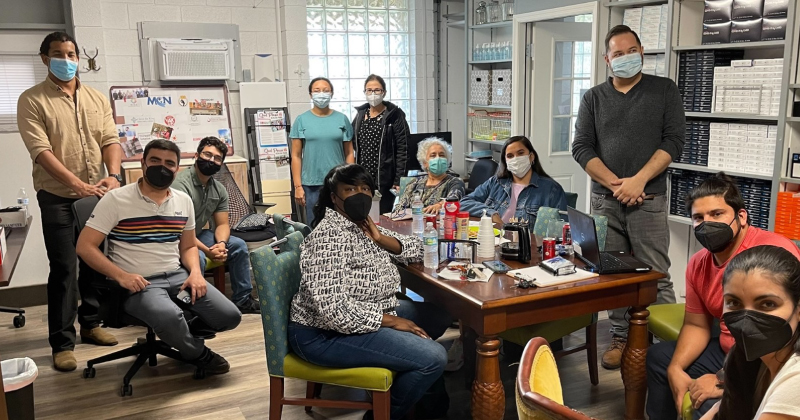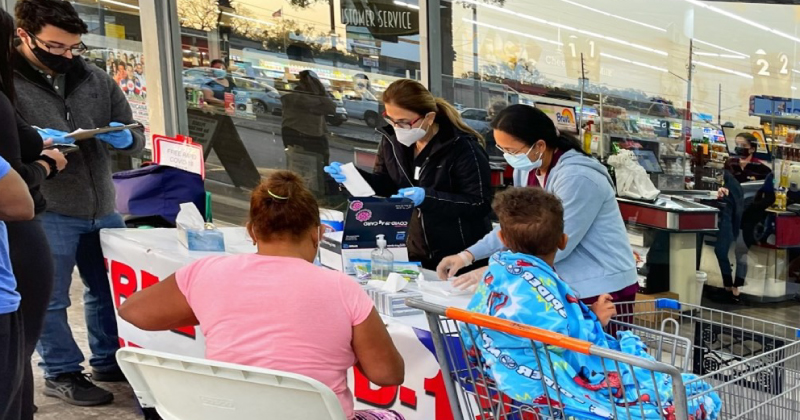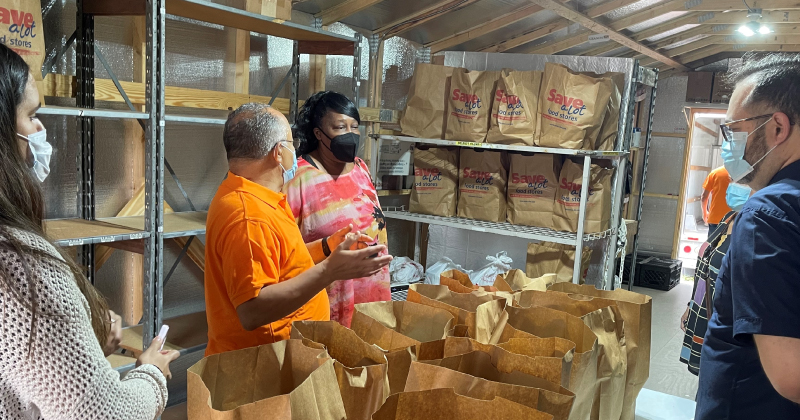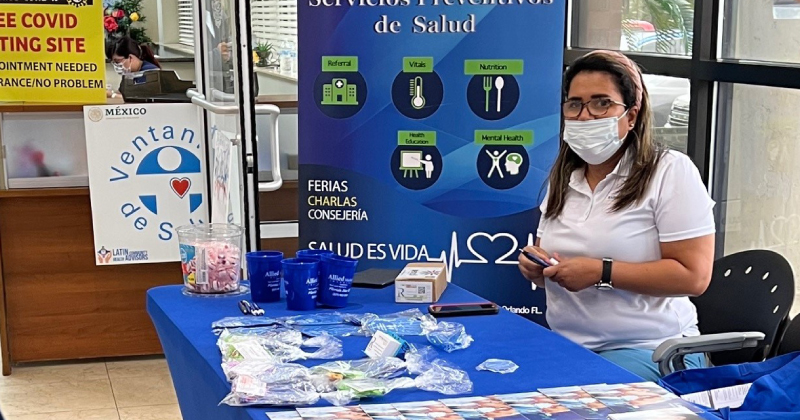Partner Spotlight: Coalition of 100 Black Women

Following years of disinvestment in US public health and social services, the COVID-19 pandemic has brought into stark relief the mounting systemic racial inequity, poverty, and unequal access to resources and health services our communities face. While our country is moving towards recovery, our public health system is being stretched beyond capacity, causing some communities to have less access to vaccines and resources than others. Providing equal access to vaccines to everyone in the US, particularly those in communities that have been disproportionately burdened by this pandemic, and who may have limited access to quality health care, is critical to the country’s ability to move forward.

To pull communities out of the pandemic and to prepare for future public health needs and emergencies, Migrant Clinicians Network (MCN) collaborated with the Coalition of 100 Black Women of Central Florida. This partnership, supported by the RISE (Reach, Immunizations, System Change for Equity) initiative which is itself funded by the Health Resources and Services Administration, seeks to advance equitable vaccine response. Together, we pursued active, engaging, and relevant communication strategies to connect, support, and educate not just the hard to reach, but the hardly reached and the hardest to reach in Florida.
The Coalition of 100 Black Women of Central Florida is a nonprofit whose mission is to advocate on behalf of Black women and girls through national, state, and local actions that promote leadership development and gender equity in the areas of health, education, economic empowerment, and social justice. The coalition is led by the ever-so-fearless Lawanna Gelzer. From fighting city hall on the misuse of city funds to pushing for environmental justice, Gelzer and her team have worked tirelessly to make sure that their community is taken care of. The coalition’s activism and dedication to their community allowed for the successful launch of their “Let’s VAX UP! It Takes a Village” campaign whose message spread across three Florida counties: Duval, Hillsborough, and Orange County.

Understanding that partnership and collaboration are key to creating a sustainable long term equitable pandemic response, Gelzer joined forces with local organizations and churches that cater to different at-risk populations across central Florida. With the help of Christ the King Episcopal Church and Central Florida Black Nurses Association, the campaign reached over 600,000 people that allowed for 1,634 people to get vaccinated. The campaign served as a trusted source of information for communities who, at the time, had a tough time trusting other sources. According to Gelzer, “you have to understand the communities and how to integrate them. Once you understand the barriers, you can better strategize.” Cognizant that misinformation and mistrust were common barriers amongst all the communities they served, the Coalition of 100 Black Women and their local partners identified local trusted community intermediaries such as community ambassadors, outreach workers, and messengers and asked them to lead outreach and education efforts. Their communication strategies depended heavily on the use of social media, radio, print, television, and online live streams while the community outreach work and activities were done by leveraging the work of local food pantries and other established community events. Gelzer explains that the goal was not to “just receive a one-time funding” but rather to “become sustainable with the tools that are already in the community.”

During our three-day visit to sunny central Florida, Deliana Garcia, Director of International Projects and Emerging issues, Jessica Calderón, Witness to Witness Program Associate and I had the privilege of witnessing the Coalition’s work firsthand, and it was nothing short from astonishing. From day one, we witnessed Gelzer’s leadership and the way she was able to effortlessly prepare stewards within different communities to develop and implement a community resilience plan that addressed long-term vaccine and public health hesitancies. As soon as we got off the plane, we headed over to Christ the King Episcopal Church where we were greeted by Father Jose, a pillar of the community. As we toured the church, we realized that the church was more than a place of worship, but rather a haven for so many in the community. After learning about the free HIV testing, free COVID testing, and food pantry services the church provides, we quickly understood why Gelzer entrusted Father Jose and his church to help her build the trust and civic capacity that was needed to develop the community resilience plan. Father Jose’s partnership with the Mexican Consulate, Azalea Park Neighborhood, and the Hispanic Heritage Association helped address the underlying misconception and inequalities in the community, making him a perfect partner for the RISE initiative. With partners like Gelzer and Father Jose, MCN helped build capacity and infrastructure for communities to become the owners and generators of solutions to their communities’ biggest concerns during the pandemic.
Got some good news to share? Contact us on our social media pages above.
Return to the main blog page or sign up for blog updates here.
- Log in to post comments
